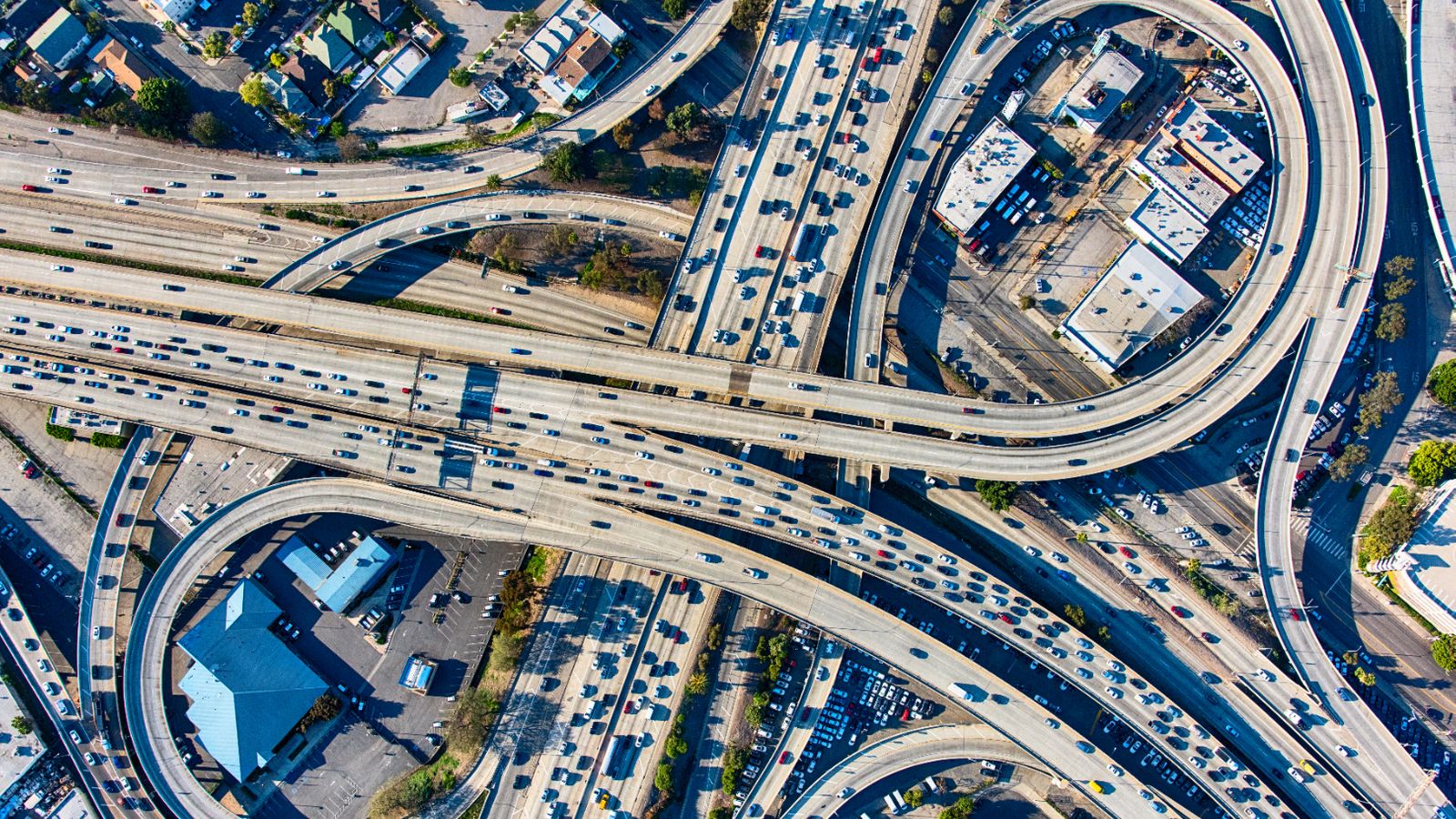US lawmakers have approved a trillion-dollar infrastructure bill after months of setbacks due to infighting between Democrats.
The funding package, which passed with 228 votes to 206 in the House of Representatives, will increase government spending on roads, bridges and airports, as well as public transport, broadband and water.
Six of the Democrats’ most progressive members – including Alexandria Ocasio-Cortez of New York and Cori Bush of Missouri – voted against the legislation, while 13 Republicans voted in favour of it.
The public works measure will now head to President Joe Biden’s desk to be signed into law.
He hailed the bill as “a monumental step forward” that would tackle the climate crisis, create jobs and “ease inflation pressures and lower costs for working families”.
“Generations from now, people will look back and know this is when America won the economic competition for the 21st Century,” Mr Biden said in a written statement.
The package is the largest national investment in the country’s infrastructure for decades.
Republican Glenn Youngkin becomes shock new governor of Virginia as mid-term blues forecast for Joe Biden
COP26: US president lashes out at Russia and China over failure to attend COP26 climate summit
COP26: Deforestation, methane and climate finance pledges roll in, amid caution there’s still a ‘long way to go’
But a second, even larger social safety net and climate change bill was put on hold until later this month after moderates demanded a nonpartisan analysis of its costs.
Democrats had hoped to secure a double-barreled victory by passing the 10-year, $1.85tn (£1.37tn) “Build Back Better” bill on the same day.
Five moderates agreed to support the bill later if estimates from the Congressional Budget Office are consistent with preliminary numbers that White House and congressional tax analysts have provided.
Subscribe to the All Out Politics podcast on Apple Podcasts, Google Podcasts, Spotify, Spreaker
Due to their small majority in the House, Democrats cannot afford to lose more than a handful of votes.
Progressives like Ms Ocasio-Cortez wanted the infrastructure plan to be connected to the social spending package, fearing that passing infrastructure first would weaken their leverage in shaping the Build Back Better bill.
If passed, the Build Back Better bill would represent the largest expansion of social programmes in the US since the 1960s.






















